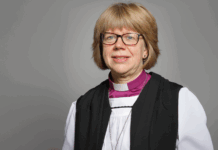After all these days of hate and violence in the UK, we must find a way to live together well
Across the UK, communities have been left horrified by the violent scenes in our towns and cities, with most of us reduced to murmuring inadequate truisms: rioting is bad. Law and order is good. Be nice to people.
The trouble with such statements is that they contain just enough truth to inoculate you against the real thing. The violence across England and Northern Ireland in recent days does contain common features. It is racist. It targets ethnic minorities. It is anti-Muslim, anti-refugee and anti-asylum seeker. It was detonated by lies and fuelled by deliberate misinformation, spread quickly online by bad actors with malignant motivations.
The lies and misinformation flourished in fertile ground cultivated by years of rhetoric from some of our press and politicians, arriving at a point where some felt emboldened to try to set fire to a hotel housing asylum seekers and target mosques.
How, then, do we begin to find a way forward, to dismantle these divisive and violent forces and instead pursue a path towards peace? Brave statements and great announcements do not propagate peace; peace is achieved through painstaking meetings and with careful plans, developed in one place and piloted in another, requiring time to change things.
Some short-term responses are simple. Rioting is wrong. The riots (don’t dignify them with the treasured word “protest”) are criminal and must be controlled. Despising others is wrong. Disagreeing is healthy and being disagreed with can be strengthening, unless it is underpinned by hatred and violence.
It is fundamental that free speech, freedom of worship and the right to peaceful protest must be protected. When freedom of religion and belief is forbidden to many around the world, it is important that we defend these things as a matter of policy – and encourage religious literacy in education and in government, to equip people to live in a faith-filled world.
Atheism or agnosticism are choices people may make, as are the different faiths, but no choice is an excuse for ignorance of others. And to remove any doubt, the Christian iconography that has been exploited by the far right is an offence to our faith, and all that Jesus was and is. Let me say clearly now to Christians that they should not be associated with any far-right group – because those groups are unchristian. Let me say clearly now to other faiths, especially Muslims, that we denounce people misusing such imagery as fundamentally antichristian.
Against the backdrop of racism and violence, some of the most powerful scenes after the riots have included an imam in Liverpool bringing food to a small group of far-right rioters and engaging in conversation, bravely crossing boundaries to demonstrate shared humanity and defusing tensions in the process.
In Southport, a group of bricklayers helped to rebuild a mosque that had been vandalised. And in Sunderland, a Church of England chaplain worked with international students to clear away debris after an evening joining with others to shield the minster from damage. He then escorted Black nurses to their work in a nearby hospital in the face of violent threats. We must develop and cherish these examples of civic virtue that have been counter-messages to those of the mob.
The philosophical turn to the self has been an enormous gift to the development of ideas in every section of knowledge. But it does not necessarily help us build communal life. Jesus told stories of people such as the good Samaritan, or the prodigal son. At the heart of his teaching was a message to love God and love your neighbour – not in an emotional way, but in a tough, practical, actively seeking the flourishing of others way.
And “neighbour”, to Jesus, did not just mean those living next door “like us”, but instead, extended to those who were different, even ancient enemies. This country has shown at times that it is capable of that embrace of difference. Let’s build more of those bonds, learning from those in riot-hit areas such as the imam in Liverpool and the chaplain in Sunderland, who have shown us a better way.
This difficult path towards living well together means setting the foundations for reconciliation. Rather than the idea of a quick fix or a warm hug after a disagreement, reconciliation is the long and often painful process of addressing injustice, careful research into the deep-rooted causes of division and facing uncomfortable truths. It requires enormous care, where the misuse of privilege and power are put aside and we turn outwards to one another as the starting block of building a flourishing community.
We cannot do these things accidentally. We can do them if we focus and work with real intent together, and we must do this work to achieve a better future, rooted in the common good and in solidarity. That means no preferences except on the basis of need. It means good housing, health and education for marginalised communities in our urban centres and former mill towns, as well as on the coasts and in the outer estates.
Because, let us make no mistake, those communities left behind in our country’s race to growth reflect the rich and precious diversity that is our nation today. It will involve serious conversations about what it means to live together well, knowing we share lots in common: streets, schools, universities, workplaces, media, as well as our fundamental humanity. Embracing the opportunities and challenges offered by living in such a diverse country is a task for all of us, and it is clear from the last few weeks that that work is long overdue.



